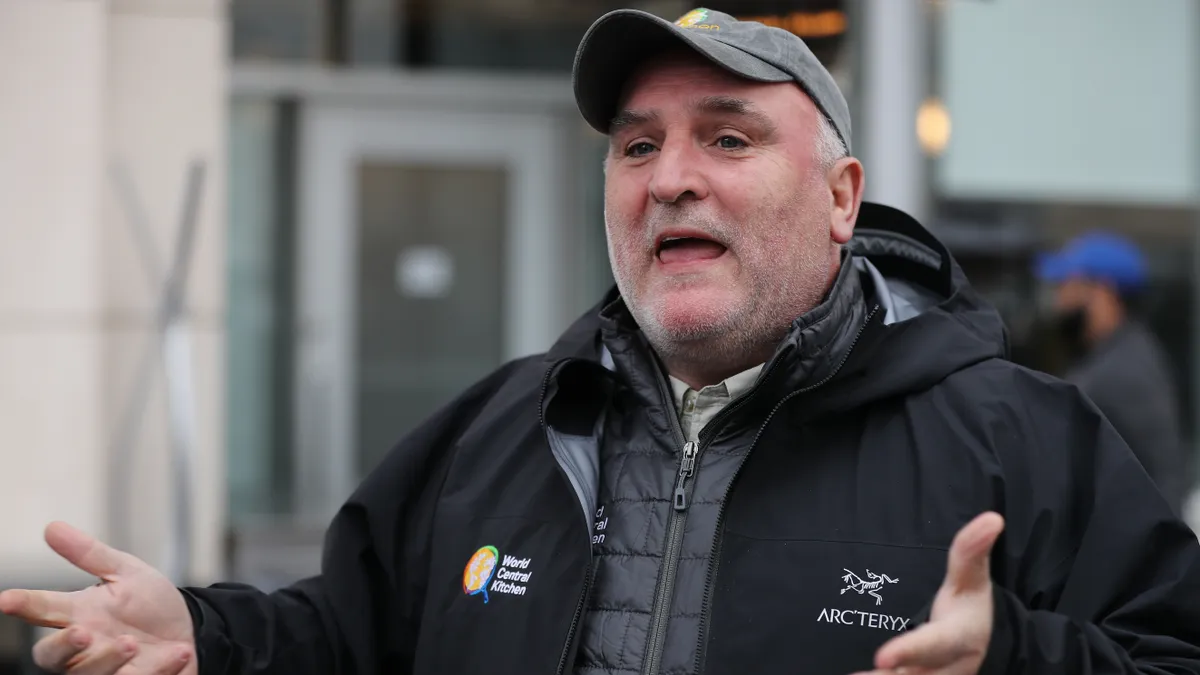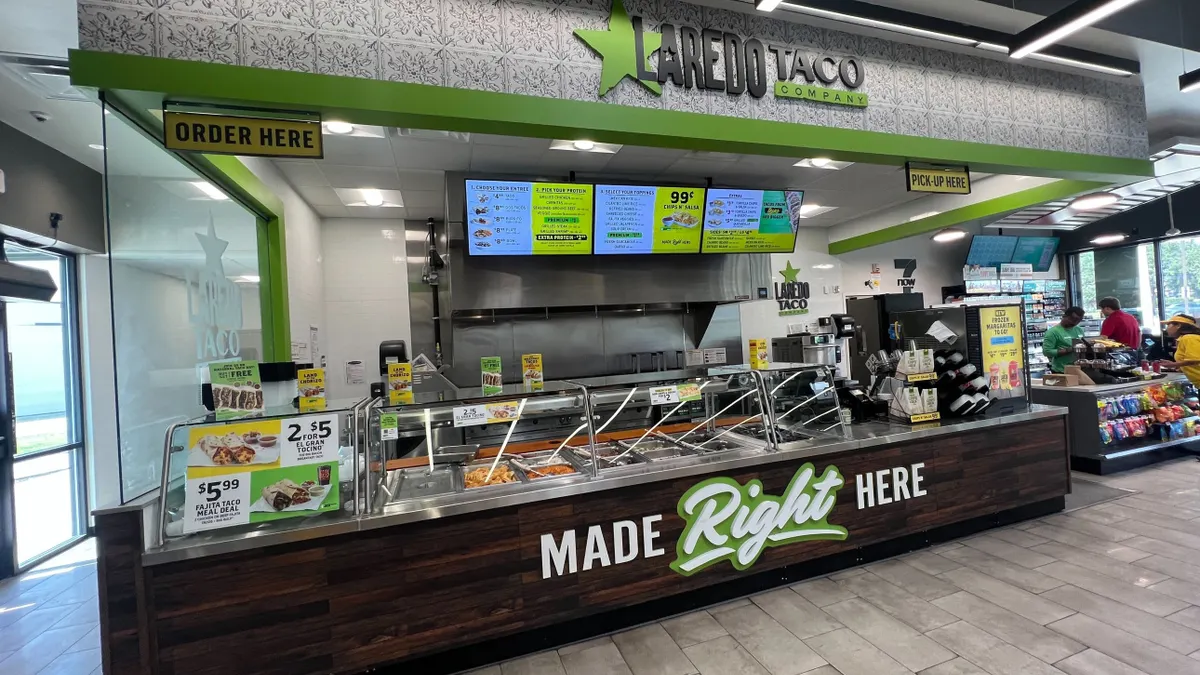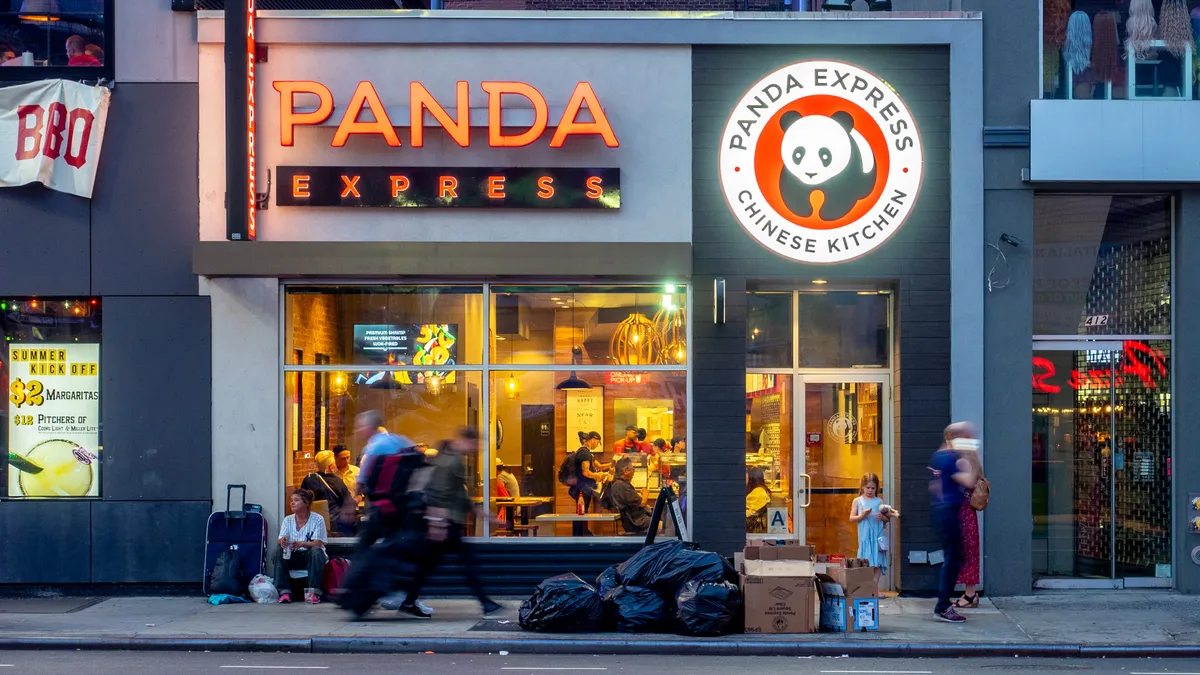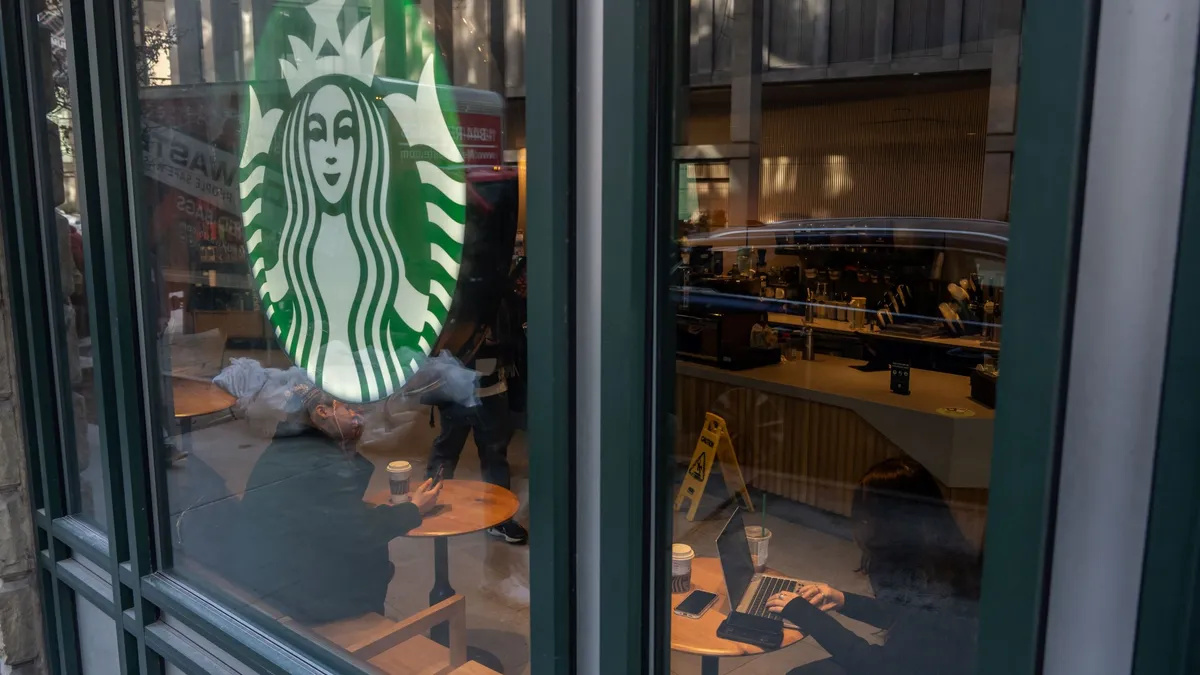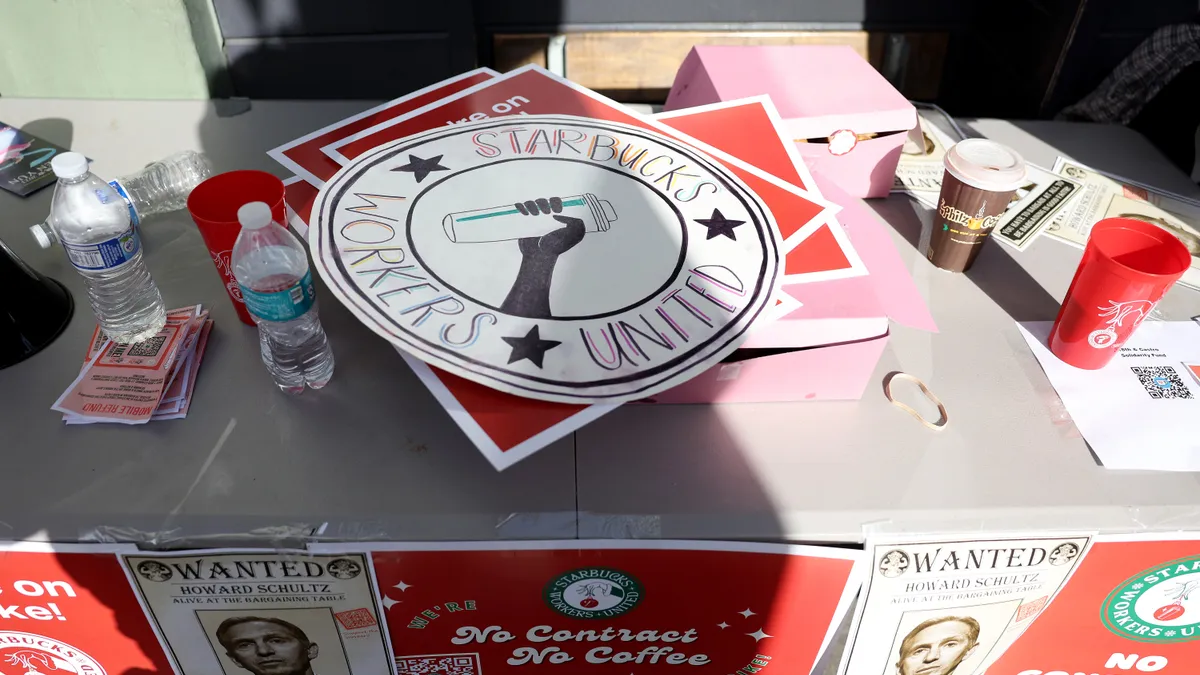Workers at a José Andrés Group restaurant in Washington, D.C., secured union recognition earlier this month, extending a series of political and organizing wins by foodservice workers in the nation’s capital.
Organizing began when workers at The Bazaar by José Andrés, located in the Waldorf Astoria on Pennsylvania Avenue, learned they were paid significantly less than unionized foodservice workers in the hotel. Bazaar employees earned $9 per hour plus tips and benefits as of early February, according to Bazaar food runner Daniel Rueda, while unionized workers made $20 per hour plus tips and benefits. José Andrés Group didn’t immediately respond to a request for comment about what its Bazaar employees are paid.
The Bazaar workers discovered this pay disparity through conversations with unionized workers in a shared locker room, Rueda said.
“I saw what the other workers at the Waldorf Astoria Hotel had. They were represented by UNITE HERE Local 25,” Rueda said. “They had better pay, better benefits, and employer-paid health insurance, something that Bazaar doesn't have.”
Rueda said he and other workers at The Bazaar began to form an organizing committee in the late fall. Eventually, the group petitioned management for recognition as a union toward the end of January in a bid to secure improved “wages, working conditions and quality benefits.”
“I enjoy working at The Bazaar, and I love my co-workers,” Rueda said. “Why shouldn’t we also have the same things [as the union members in the Waldorf Astoria]?”
The Bazaar employs about 140 workers, according to Local 25, the unit of Unite Here which Rueda and his colleagues reached out to and which now represents the restaurants’ workers. The workers drew support from immigrants rights organizations, like CASA, which called the organizing drive an immigrants rights issue and cites that a majority of Bazaar workers are immigrants.
“I saw what the other workers at the Waldorf Astoria Hotel had. They were represented by UNITE HERE Local 25. They had better pay, better benefits, and employer-paid health insurance, something that Bazaar doesn't have.”

Daniel Rueda
Food runner, The Bazaar by José Andrés
The central location of The Bazaar and the Waldorf Astoria in the capital proved an asset to the workers’ campaign, as members of Congress including Sen. Ed Markey (D-MA) and Reps. Debbie Dingell (D-MI) and Ilhan Omar (D-MN) expressed support for the organizing drive while attending events at the hotel.
Rueda, who studied political science at American University, said the organizing drive was an organic, collective effort on the part of many workers at The Bazaar.
“It becomes like a game of telephone in a way, like, ‘hey, this [organizing drive] is happening, this is something that we want to do. These are the reasons why I'm fighting for [a union],’” Rueda said. “One person would try to bring along three people, or another person would try to bring a lot of other people. You got to the point where there was a lot more appetite for organizing and for obtaining the benefits and rights and respect that we deserve, than we had imagined.”
In the last few days before the union went public at the end of January, Rueda said, members began signing up workers on cards, building on those conversations they’d had in previous months.
“I was bursting at the seams with excitement,” Rueda said. “It was definitely an atmosphere in which everybody at the restaurant was looking at each other like ‘it's about to go down.’ And we were all just looking very excited and very elated.”
The workers delivered the petition to management alongside a poster with the photographs of the workers who had signed cards and pledged to support the union, a fairly common tactic among unions, and Unite Here especially, to emphasize the human dimension of majority support. When the workers delivered the petition they had at least 70% support, Rueda said.
Reaching that majority support required staff to overcome fears of retaliation, Rueda said.
“This takes the courage of myself and other individual people to say ‘I deserve better,’” Rueda said. That experience of collective solidarity has given him a greater sense of pride in his work.
Ultimately, Rueda said, he and his co-workers got organized not out of a desire to confront José Andrés Group, but out of a wish to make The Bazaar better and take pride in working at a famous fine-dining establishment.
On Feb. 2, a few days after the workers presented their petition, José Andrés Group voluntarily recognized Unite Here Local 25 as the bargaining representative for the workers. The company did not answer Restaurant Dive’s questions regarding its decision to recognize the union, but did share a statement.
“The Bazaar in Washington has agreed to voluntarily recognize a bargaining unit to represent workers,” the company said. “We hope in coming to the table together we can work cooperatively to preserve good jobs that will employ workers for years to come.”
Rueda said the voluntary recognition, in lieu of a drawn-out National Labor Relations Board election, was a pleasant surprise. “I hope that they act with the same swiftness in getting to the negotiating table with us.”



